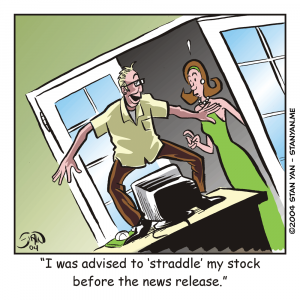Trading is fast-paced. The markets can move rapidly, and it is sometimes necessary to react quickly and correctly. Depending on your experience and natural inclinations, however, making the right decisions quickly can be difficult. When decisions are made on the spot, they are often wrong, and wrong decisions produce losses. It is usually better to plan your trades carefully rather than make decisions on the spur of the moment.
Research studies have shown that when people are asked to make spontaneous judgments, they tend to rely on heuristics or rules of thumb. For example, people have a powerful inclination to avoid risk, and when asked to make decisions rapidly, they do whatever they can to reduce risk and potential loss.
That can mean holding on to a losing trade and hoping that it will turn into a win, or closing out a trade prematurely and missing out on an opportunity that would have produced a substantial profit. People also may base their decisions on the availability heuristic, the tendency to make judgments based on events held in memory. For example, when trading a tech stock while under pressure, we may incorrectly assume that it will increase because we have many vivid images of tech stocks increasing available in memory.
Yet in the particular trade, we are monitoring at the moment, the stock may not increase. Similarly, if we have made a series of winning trades in the recent past, we have fresh memories of these wins and tend to over-estimate the probability that our current trade will also be a winner. These heuristics are especially powerful when we are under pressure and we believe that our future is particularly uncertain. We deal with uncertainty by relying on what we are most comfortable with and tend to go with our hunches, but it is at these times where are hunches are usually wrong.
When people are uncertain, they tend to be a little anxious. Controlling the anxiety, no matter how slight, requires psychological energy. Since psychological energy is limited, coping with anxiety takes away energy from our decision-making processes. With limited psychological resources available for processing decisions, we are not able to consider all alternatives carefully and objectively. Instead, we act on impulse, and our impulses are usually wrong.
Rather than make decisions spontaneously, it is wise to carefully plan a trade before executing it. If you carefully determine an entry and exit point, you’ll be able to implement your plan when faced with uncertainty and required to act decisively in the heat of the moment.
The more detailed your trading plan, the easier it will be to follow your plan. And the more you can trade your plan, the more you will trade profitably and consistently in the long run. Although some traders can trade by the seat of their pants, many traders do better by carefully planning their trades and by following their plan closely. By avoiding spontaneous decisions, you can realize the consistent profits of a winning trader.


